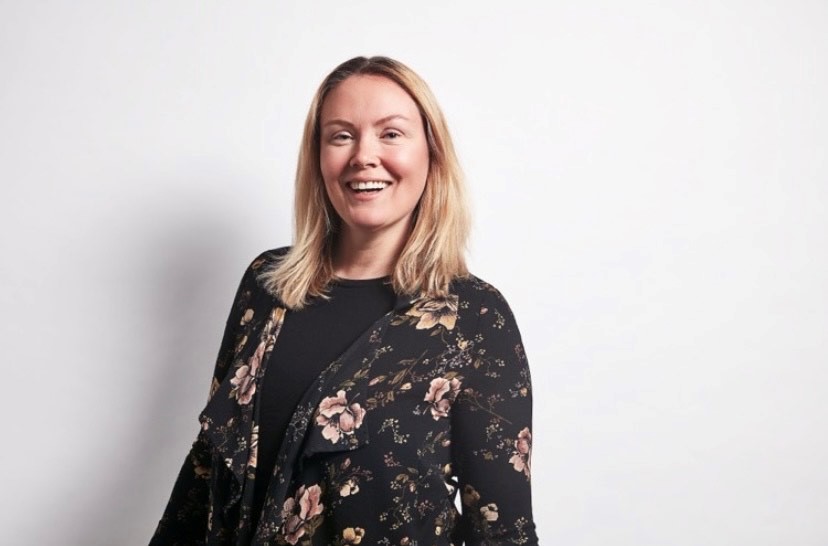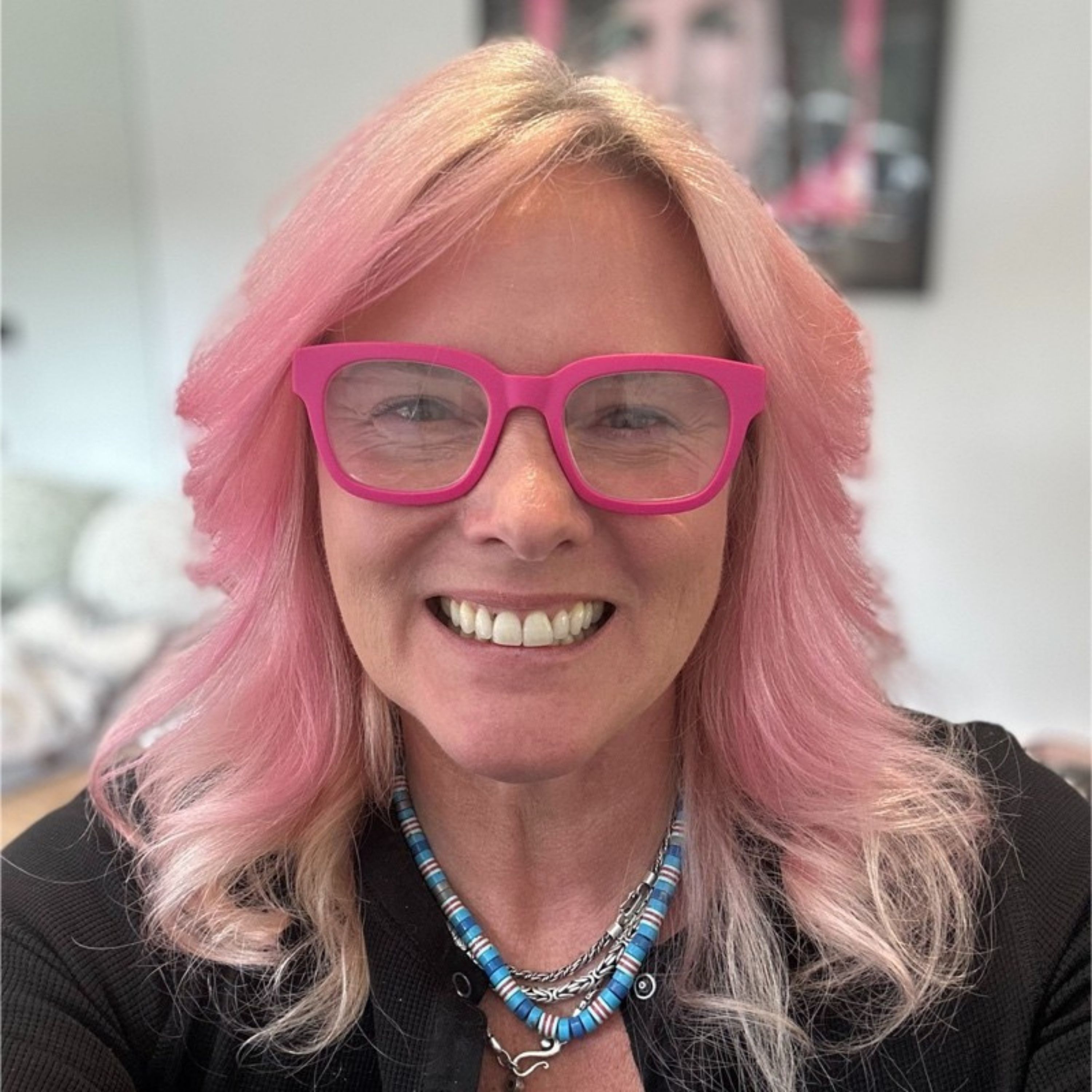
Tech Talent Spotlight Series: Naomi Timperley
20 Apr, 20235 minutesNaomi Timperley is the Co-Founder of Tech North Advocates, a support system for helping...

Naomi Timperley is the Co-Founder of Tech North Advocates, a support system for helping startups and scale-ups with promotion, investment, and new talent, and GSI, short for Growth Strategy Innovation who specialise in helping businesses grow, develop strategy, and innovate for success.
She is proud to be in the top 50 Computer Weekly Most Influential Women in UK IT 2018, 2019, 2020, 3rd most influential woman in 2021, and 4th in 2022. Naomi is an experienced growth and innovation consultant with established relationships across the UK.
She has extensive experience working with start-ups and growth businesses, particularly in the tech, digital and creative sectors. Naomi has been a mentor for 8 years and mentored several hundred businesses. She is an Honorary Industry Fellow at the University of Salford Business School and chair of the Industry Advisory Board. Naomi also sits on the board of charity Digital Inc and Social Enterprise PIE and she was previously chair of Future Everything.
Please can you introduce yourself and your roles?
I am Naomi Timperley. I am a co-founder of Technical Advocates and co-founder of GSI Limited, which stands for Growth Strategy and Innovation. I hold a number of different board positions and I am an honorary fellow at the University of Salford Business School.
So, can you tell us about your background, your journey into tech, what inspired you, and how you got to where you are?
It's all accidental and I'm not lying. My first two careers were in the travel industry and in tech recruitment in the late nineties. That was my first foray into tech. Then I took about four years out to have my two daughters and then came across an American events company that was aimed at parents and kids and I brought the concept to the UK.
Within two years, we grew in nine cities across the UK. I got offered an investment through Dragons Den, turned it down, and then started getting involved with Entrepreneurship, women's entrepreneurship, and youth entrepreneurship. I came away from the events company after about four years and set up a youth enterprise and employability company called Enterprise Lab with two guys whom I met on Twitter. We did have obviously lots of discussions before we set up the business and the main focus of the business was to bridge the gap between education, employment, and enterprise which is something I am very passionate about.
I left there and have been consulting ever since. I concentrated on very early-stage startups, have created and conducted numerous entrepreneurship programs, and have worked with a variety of organisations, but they have all been in the digital, tech, and creative industries. In 2016, I founded Tech North Advocates after meeting Russell Shaw from Tech London Advocates. Russ was doing some amazing work, and he came to Manchester in search of someone to establish Tech North Advocates.
I was seated next to Volker Hirsch, and what Russ spoke about TNA was comparable to what we were doing, which was connecting individuals. So we decided to do it together, but Tech North Advocates, however, we don't tend to produce our own events, we speak at events, and it's basically reinforcing what we were doing already, which is connecting the links.
As it's now Global Tech Advocates, it enables us to link northern-based firms with a much wider network that they might not have had access to previously. In the past, if we go back around 10, or 12, years, we didn’t have the accessibility or the initiatives to give the opportunities to people like we do now. For example, I didn't attend college university until I was 44 years old. Without having any A Levels or a degree to begin with, I was persuaded to pursue a Master's degree. I graduated and received a post-graduate certificate of which I'm really proud.
Over the years, I’ve worked with academics and scale-up enterprises, I've worked with thousands of businesses and personally mentored about 500 of them, so there isn't a business problem I haven't seen. So that's my planned history; everything happened by chance.
One thing it did teach me—and a lot of the skills I've acquired working with the Advocates and the companies I've worked with—is the importance of forming strong communities and relationships, I think it's an incredibly powerful skill to have developed.
As you said, you are the co-founder of Tech North Advocates. Can you tell us what it is and what it's trying to achieve?
So essentially, it’s all about bridging the gap.
Making sure that, that we've got connections with a worldwide, audience rather than just being in the north. We’re able to bridge the gap between the independent sector groups such as the tech leaders, experts, and investors, and the wider tech community.
As I said, we operate very differently. We don't do events, but we are part of lots of events and it's private sector-led rather than attached to anything to do with the government. It's a mix of technology entrepreneurs, government figures, and vital suppliers to the tech sector and Tech North Advocates allows us to be connected to that much bigger network. I think what we're doing is assisting, we're championing, and we're connecting.
So what impact do you think Tech North Advocates is having?
It's creating a greater understanding of how small the world is and how important it is to make connections, engage in conversations, and absorb knowledge from others. As I previously stated, we don't organise many events; instead, we prefer to be a voice and speak at other events.
To have a voice in a space where there are occasionally only people from the South of the UK voicing their opinions is important to me. Although I was born and raised in the South of the UK, I have lived in the North of the UK for the past 25 years.
When we talk about leveling, there aren't always a huge amount of instances where it truly happened because we don't get a voice, in my opinion, because there are so many loud people from the Southern voices. So I think the impact we are trying to have is it ensures that we get a voice.
Every time there is a big Global Tech Advocates event or a London Tech Advocates event, I make sure to attend and bring along other members of the Tech North Advocates so we can network. I believe it is crucial for them to participate and get in on the action.
You do a lot of work with young people and schools. Why are you passionate about helping and developing youth digital skills?
Essentially, I believe that’s how we're going to fix the digital skills gap and build a talent pipeline. We've got to be going into schools, and supporting teachers and students to know that actually, the roots of tech are not just about coding and that there is a plethora of different types of roles.
There is a lot going on in the north. Manchester is the hub for many technology enterprises, while Liverpool and Newcastle are also home to large, creative digital environments. I think that it’s important that we develop some homegrown talent. I’m an enterprise advisor at two schools in Manchester and the problem is that the careers advisors don’t know about all the many opportunities available. They are aware that there are roles in tech, but they are unaware of all the positions available.
One of the things I’ve done is an advocate for digital skills through organisations like the Inspiring Digital Enterprise Award, which is free for schools and combines tech skills with entrepreneurial abilities. It’s the digital equivalent of the Duke of Edinburg scheme, where students can hit bronze, silver, and gold awards.
It’s evident that fewer students are enrolling in computer science courses at the GCSE and A-level levels. I feel one of the causes of that is that the course materials still refer to floppy discs and need to be updated. I think it’s essential to make sure that children are challenged. I serve as a trustee for a non-profit organisation called Digital Inc.; among the many things they do, they operate a college called Desk that is dedicated to helping young people with autism into the tech industry.
I think that is one of the ways to fix the digital skills gap, but also we need to ensure that we are looking at transferrable skills. Looking at people that perhaps have different types of jobs, but have made the career move into a role in tech and are able to use these transferable skills in tech. I work in the tech sector, but I don’t know how to code, but I could probably do lots of other different roles within the tech sector and it’s about educating individuals to be aware that tech touches every point of our life.
What can be done to be encouraging the younger generation, specifically women, to take an interest and enter a career in the tech industry?
A few years ago, I worked with one of the schools to determine how to include entrepreneurship education in the curriculum. I’m very passionate about entrepreneurial education, and I believe that it should run through the veins of schools.
Making real-world issues relevant to education is crucial, in my opinion, because it helps students develop life skills. Problem-solving, collaboration, teamwork, negotiation, persuasion, communication, commercial awareness, perseverance, motivation, and organisation are some of the top 10 abilities that employers seek. When I say the education system, I mean primary school, high school, college, and university. We need to make sure that young people are getting those skills.
I believe that the curriculum needs to include a few highly important skills. Little emphasis is placed on the development of these skills, and it appears to be nothing more than an exam factory. If you were teaching maths and included real-life problems, it would be 10x more engaging since then the students would understand its importance. There are some excellent teachers who do that, but the educational system is overloaded, which is why they tend to lose individuals between the ages of 12 and 18.
Of course, there is also another side to the coin, and that is the development of T levels, and they have a strong focus on careers. We need to make sure that there are opportunities for people from the industry to go into schools and teach some of the curriculum from T levels in real-life situations, rather than merely for academic purposes. Making sure that the industry understands we have a role as well, in my opinion, is important. Everyone is aware that we have a significant skills gap and are having trouble recruiting, but we need to take some responsibility for how we can help the issue. We need to realise that teachers need support around careers, but also it’s about making them more enterprising and the young people more enterprising.
You’ve been consecutively named by Computer Weekly in their most influential women in tech list, why do you think this is great for young females to look at role models like the women on this list?
If we go back to the late 1990s when I worked in recruitment, reading Computer Weekly when it was a physical magazine was something I used to do, so for me, it’s probably one of the things I’m most proud of.
Women, in my opinion, require role models, and I believe they should have a variety of them. There are some highly technical individuals on that list, but there are also some that provide significant support to the tech industry in different functions. I think it’s about making sure that women are heard and have a voice, as well as including people from all walks of life because we’ve all had different journeys. As I said, I went to university when I was 44 but I think you’re never too old, and you are always constantly learning as well. So I think it’s really important to have role models.
What do you feel is the biggest obstacle for individuals today who are interested in technology as a profession?
Um, I think they are unaware of the different types of roles.
I’ll share a remarkable story from my experience working with the IDEA Awards, which are open to everyone and are not just for young people.
One of them was when with a community group, which was supporting people that had fallen by the wayside and lacked confidence. There was one particular guy who hadn’t been out of the house for six months. With the community group that he was attached to he slowly built his confidence. He came into the community centre, he started reskilling, he did the bronze award, did it very quickly, and then became a champion of it. I remember him being on a stage with our mayor, Andy Burnham, and six months previous, he couldn’t leave the house.
Another story was of a young mother in her early 30s who had young children and had struggled in school learned about the IDEA Award through her local community group and quickly earned the bronze award. She had technical competence and flew through the mini-coding challenges. Now, what is she doing? She has a 3D printing company. These are some of the incredible things that can happen through these initiatives and what people can do when given the opportunity.
Shows like ‘The Big Bang Theory’ don’t accurately represent what people who work in technology are like, despite popular belief. I think everybody has the ability to learn how to code it's just about reprograming your own brain.
It involves being aware of the variety of roles. We can't just have a room full of coders. You need other people that have diverse skills. It's important to ensure that this is supported and this goes back to the importance of transferrable skills and role models. People need role models. I think if they can't see people like them, they're not going to go into that field.
What advice would you give to anyone who is looking to enter the tech sector?
My tip would be to see what networks are out there. There are some really brilliant community groups, just a couple that I'm part of, for example, Women in Leeds Digital, I'm also on the Tech London Advocates, and Women in Tech groups. There are loads of similar ones up in Manchester and all across the country.
I would also say make sure that you educate yourself because there are loads of really short courses such as Google which have got loads of brilliant courses that you can do online to get skilled up.
I believe it's important to consider your transferrable talents and reframe your prior experience in light of the technological world. If you've worked in project management in another industry, for instance, those project management skills can be transferred to the tech industry. I believe the same thing about other people looking at the sector and also having that perspective that actually most businesses have technology in them. So you might not think you're working in tech, but actually, technology touches everything at the moment so change that mindset and you will be surprised what incredible opportunities you will discover.
Thank you Naomi for taking the time to answer the questions for this series. Your insights and experience are invaluable and we hope it can help to advise and inspire the next generation into tech. If you would like to find out any more information about Naomi Timperley or Tech North Advocates please feel free to check out their socials and website.









